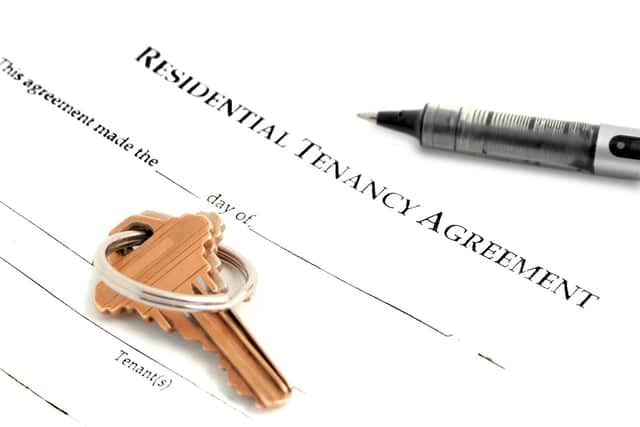Drastic shortages of stock are locking people out of the rental market
The supply and demand issue has seen the cost of renting boom over the last year, rising from an annual increase of less than two per cent in July 2021 to 12.3 per cent.
Average monthly rents have increased by £115 since last year and now stand at £1,051 per calendar month.
In Yorkshire, they have risen by 10.2 per cent and cost an average of £697 per month. In Leeds, the increase is 11.4 per cent and the average monthly rent in the city is now £830, while in Sheffield the rise is 10.8 per cent with rents now at an average £711.


Advertisement
Hide AdAdvertisement
Hide AdThose looking for a let in London face the greatest challenge as rents there top the growth table with a 17.8 per cent increase, followed by Manchester with a 15.5 per cent rise.
Hometrack says the rise is out-pacing earnings growth in all regions and countries of the UK and the situation is getting worse as private landlords continue to sell homes to rationalise their portfolios in the face of tax concerns and proposed changes to letting regulations.
Many have also cashed in to take advantage of the recent boost to property values fuelled by the pandemic.
While the pace of rent increases is starting to plateau in some places, Hometrack believes that there is room for above-average growth in the less expensive areas of the UK, including parts of Yorkshire. It predicts upward pressure on rents into 2023.
Advertisement
Hide AdAdvertisement
Hide AdThis and the cost of living crisis is leading people to look for smaller, energy efficient homes.
In the regions, the difference in price for a two-bedroom flat and three-bedroom house is £105 per month, which equates to a saving of £1,260 per year.
There is now talk of rent caps, where rents are set at a certain value with increases linked to inflation or wage growth, though few believe this will happen in England.
However, the Rental Reform Bill, when enacted, will force landlords to make their properties more energy efficient and will restrict reasons for evicting tenants.
Advertisement
Hide AdAdvertisement
Hide AdLuke Gidney, MD of Leeds-based HOP estate and letting agency, says: “The lack of stock means that within the first couple of hours of listing a rental property, we have between 20 to 30 phone calls from would-be tenants within the first couple of hours.
“We have had to put a cap on at 25 viewings.”
He adds: “More of our landlords have sold properties and that’s the same everywhere, hence the huge shortage of stock.
“Tenants are also staying longer in a home because if they move they will face paying a higher price.”
Rent caps have been suggested, but Luke believes this would make a bad situation worse and would result in more landlords selling up.”
Advertisement
Hide AdAdvertisement
Hide AdNick Simpson, CEO of Linley & Simpson, which operates across Yorkshire, says: “Unless the government opens its eyes and recognises that landlords are the solution, rather than a problem, the situation will only get tougher.
“It is long-term political inaction to bridge the widening gap between supply and demand that is the root of what the rental sector is witnessing today.
“It is an industry battered by the perfect storm of spiralling demand, shrinking supply and mounting cost-of-living pressures.”
He adds: “It’s a classic case of the chickens coming home to roost. Years of anti-landlord legislation and an influx of red tape has forced many landlords to exit.
Advertisement
Hide AdAdvertisement
Hide Ad“This trend has been further fuelled by the rise in house prices, a tasty carrot on a stick that many landlords looking to cash out find hard to refuse.”
He predicts that the situation will get tougher and is calling on the new chancellor to announce measures to incentivise investment and lure landlords back into letting.
Nick points out that the Republic of Ireland saw its rental market crash a few years ago as penalised landlords fled the sector.
He says: “Ireland has now woken up to the fact that urgent action is needed and tax breaks for private landlords, in return for staying in the market for ten years, are among a raft of incentives being considered there. Similar proactive action is needed here.”